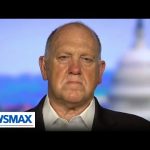White House press secretary Karoline Leavitt was blunt in defending the president’s move to keep pressure on the probes into New York Attorney General Letitia James, saying James “completely abused her oath of office” and arguing the administration is pursuing accountability, not vendettas. That bluntness is exactly what Americans should expect from a team that promised to stop the soft-on-corruption status quo in Washington.
The Justice Department and the FBI have been looking into James after a referral from the Federal Housing Finance Agency alleging she misrepresented residency and other facts on mortgage-related paperwork, and subpoenas have already been issued as part of the inquiry. This is not some partisan rumor mill story; federal subpoenas and formal inquiries are how real allegations are examined.
When the interim U.S. attorney overseeing the Virginia inquiry, Erik Siebert, stepped down after visible White House pressure, critics rushed to cry politicization — but the public has a right to insist that investigations into serious allegations be pursued aggressively. Siebert reportedly concluded the evidence was thin, and the president made clear he wanted prosecutors who would follow the facts without playing favorites. The resignation itself underscores that accountability will no longer be subject to Washington’s old, comfortable double standards.
Letitia James is not an abstract figure in a courtroom; she led the massive civil case that found against former President Trump and produced a sweeping penalty that was recently narrowed by an appeals court — a decision that voided the huge monetary fine while leaving the fraud finding intact. That split ruling explains why emotions are high on both sides and why the Administration feels justified in demanding answers about whether James herself abused the power of her office.
Conservatives should be unapologetic about calling out lawfare when public officials weaponize lawsuits and regulatory tools to pursue political enemies, and James’s conduct has drawn legitimate scrutiny after FHFA’s referral. If public servants use their authority to cripple political opponents while claiming immunity from examination, then we do not have rule of law but selective enforcement — and that is precisely what the president has pledged to end.
Meanwhile, reports that new DOJ leadership and interim appointments are being considered reflect a White House committed to restoring prosecutorial vigor and ensuring investigations are pursued without partisan blind spots. Critics will call it retribution; patriots call it restoring balance and ensuring that no one, powerful or politically connected, stands above the law. The debate now is whether Washington will return to the old protect-your-tribe model or embrace genuine, across-the-board accountability.
Americans deserve an even-handed justice system that punishes corruption and protects property rights, not a system that serves as a political cudgel for any permanent legal class. If that means scrutinizing powerful state officials who spent years litigating against presidential priorities, then so be it — accountability is not partisan, it is patriotic. The country should watch these developments closely and insist that whatever course is taken, it be done transparently, fairly, and with respect for the rule of law.




